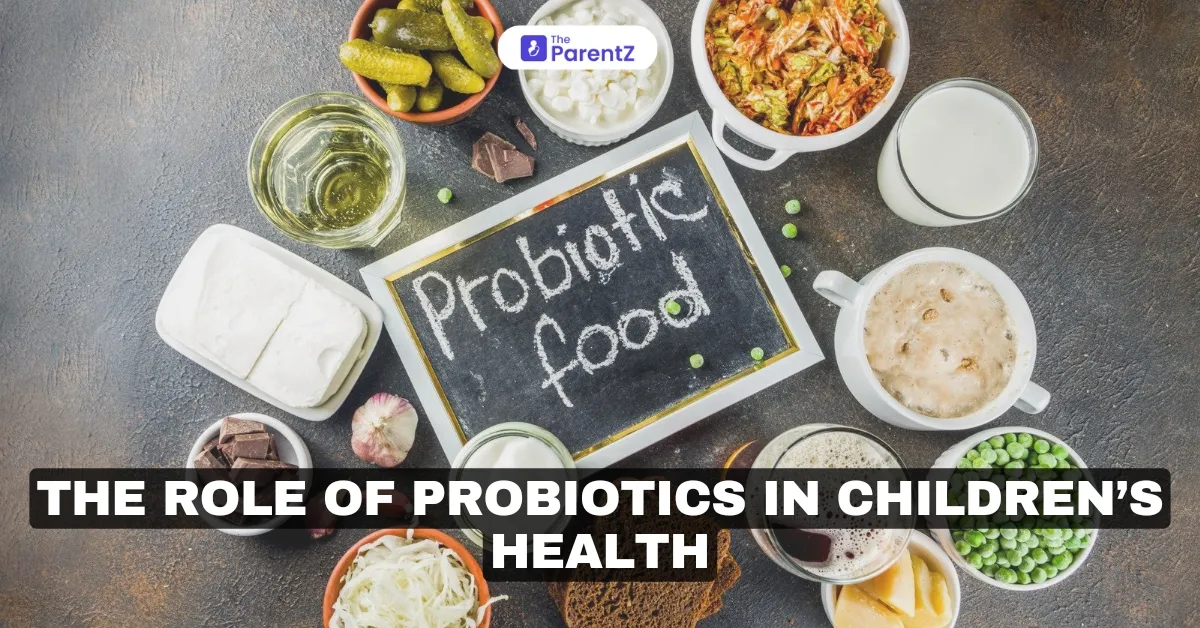Parenting is indeed a never-ending journey revolving around the holy grail of good health. From colds to stomachs, parents are often on the lookout to find ways to keep their kids feeling the best.
Here comes the role of probiotics—tiny, good bacteria that can really make a big difference. But what exactly is probiotics and how can they play an important role in your child’s health?
Read this article to learn about gut health and the role of probiotics in maintaining good health.
What Are Probiotics?
In simple terms, probiotics are live microorganisms, often referred to as good bacteria, that provide health benefits when consumed in proper amounts. They are naturally found in yogurt, kefir, and pickles. Bacteria doesn’t always mean bad for kids.
Rather, probiotics are helpful in ensuring your child’s good digestive health. They help maintain a balance between good and bad bacteria in the gut, which is crucial for digestion, immune function, and overall well-being.
Furthermore, did you know that the human gut contains more than 100 trillion bacteria? Yes, and so your gut is no different.
How Are Probiotics Important For Children?
Happy gut, happy life—this phrase has some truth to it. A healthy gut plays a key role in keeping your child’s immune system strong, their digestion smooth, and even their mood in check. This is because 70-80% of the immune system is located in the gut, and probiotics play a big role in supporting the immune system.
Moreover, according to the journal Paediatrics, children who took probiotics had a 50% reduction in the risk of developing common illnesses like respiratory infections and iarrhea. In another study, it was noted that probiotics can help with managing conditions like eczema and allergies, which are becoming more common in children. And babies who received probiotics in their first six months had a 44% lower chance of developing eczema later on.
Key benefits of probiotics in children’s health
Read below to find out some of the key benefits of probiotics in children’s health.
Boost Immunity
A strong immune system plays an important role, especially during the cold and flu season. And probiotics help to support the body’s natural defences by boosting the production of antibodies and stimulating immune cells.
Better Digestion
If your child often complains of tummy aches or constipation, probiotics are the solution. These helpful bacteria promote better digestion by breaking down food and absorbing nutrients more efficiently. In fact, they also help regulate bowel movements in kids.
Reducing Antibiotic-Linked Diarrhoea
If your child has the urge for a bathroom visit right after finishing a meal, probiotics have been proven to help reduce the risk of antibiotic-associated diarrhoea by 52% in children.
Improved Mental Health
The fact is—gut health and mental health are closely linked. The gut is often referred to as the "second brain" because it produces many of the same neurotransmitters, like serotonin, that help regulate mood. Therefore, a healthy gut can lead to a happier, more balanced child. In short, probiotics are good not just for the tummy but for the little minds too.
Takeaway
Probiotics are a simple and natural way to support your kid’s health inside out. From yoghurt to fermented food and supplements, adding it to their diet means better immunity, better digestion, and a better mood. However, you must know that probiotics work best when they are part of a balanced course. Probiotics are just another step towards better health.








Be the first one to comment on this story.